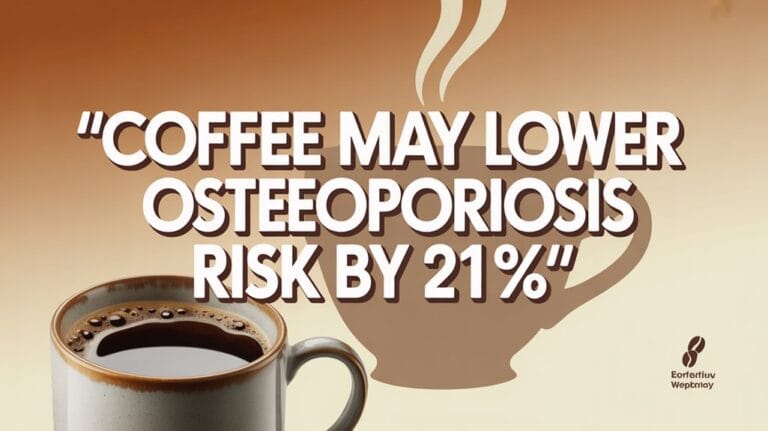Scientists are frequently examining the effects of coffee on health, and recent research suggests a potential link between coffee consumption and lower osteoporosis risk. A meta-analysis of 14 observational studies involved nearly 563,000 people. It found that those who drank coffee had about a 21% lower risk of developing osteoporosis compared to those who didn’t. Curiously, tea drinkers also showed benefits, with a 25% reduction in osteoporosis risk. These findings appear solid, as no significant bias was detected in the studies.
Recent research indicates that coffee drinkers may have a 21% lower risk of developing osteoporosis.
When discussing coffee, one must consider caffeine metabolism as well. High doses of caffeine can cause increased calcium loss through urine, which may lead to weaker bones over time. For example, when healthy adults consumed 800 mg of caffeine in six hours, their urinary calcium nearly doubled. While this excess could negatively affect bone health, moderate coffee intake may have protective effects. Additionally, the coffee bean variety influences both the flavor and caffeine concentration in the brew.
Age and gender also play important roles in how coffee affects bone density. In women aged 30-39, coffee appeared to improve spine bone mineral density. However, men aged 40-49 showed a negative trend, suggesting potential risks depending on one’s age and gender. The effects might vary greatly among different individuals, indicating that tailoring coffee recommendations by demographics could be key.
Moreover, moderate coffee drinkers—those who consume one to two cups a day—tend to have lower osteoporosis rates. This could suggest that components in coffee beyond caffeine, like antioxidants and polyphenols, positively impact bone health and metabolism.
Though the connection between coffee and osteoporosis remains an exciting area of study, researchers call for more extensive clinical trials. Understanding these benefits while keeping in mind the potential risks of excessive caffeine consumption is essential as health experts consider the complex relationship between coffee and bone health.





